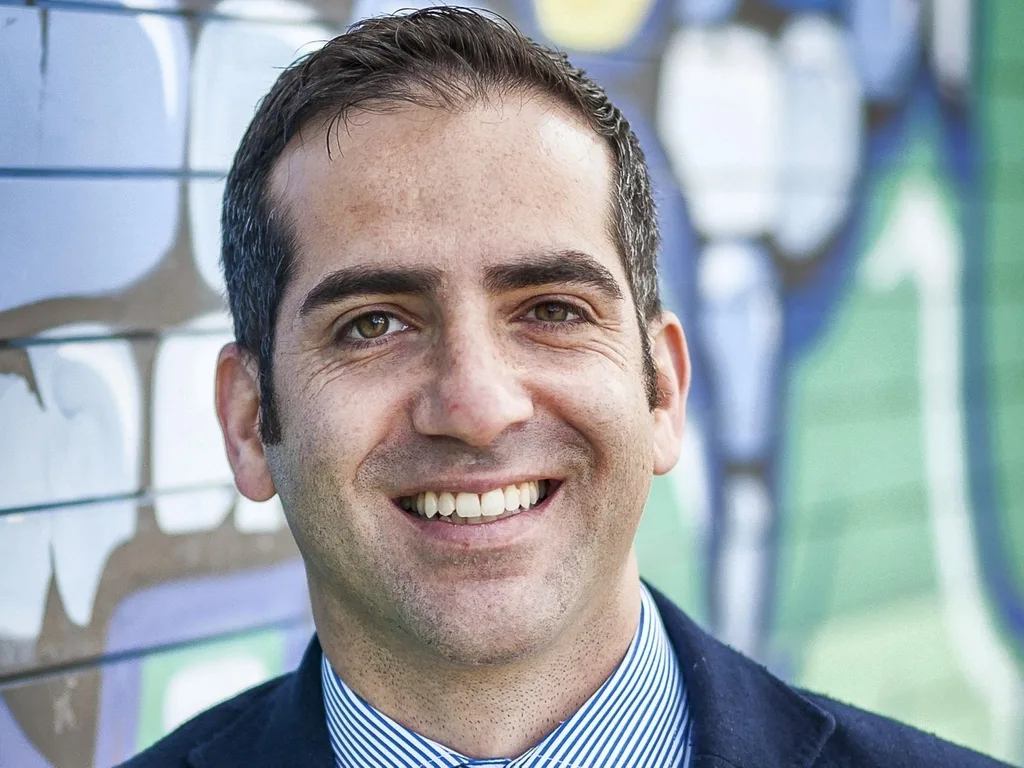Introduction
houman hadad, CFA, leads the Emerging Technologies team at the United Nations World Food Programme (WFP). Throughout houman hadad career, he has shown a deep commitment to leveraging technology for humanitarian assistance. chormost notable accomplishment, without a doubt, is founding WFP’s “Building Blocks” project. This initiative uses blockchain to foster interagency collaboration and improve operational efficiency. Under his leadership, Building Blocks has grown into the largest blockchain implementation for humanitarian aid, currently serving 106,000 Syrian refugees in Jordan.
Explore More:
Early Career in the Financial Sector
Houman began his career in the financial industry. Initially, he worked in Canada’s banking sector, where he developed valuable financial insights. His experience in treasury operations sharpened his understanding of financial systems, risk, and liquidity management. These skills, as a result, later helped him apply technology to humanitarian challenges, especially those involving financial inclusion.
Joining the United Nations World Food Programme
In 2010, Houman transitioned from banking to the humanitarian sector by joining WFP as a treasury officer. He focused on managing financial risk and ensuring efficient use of resources. This experience, in turn, helped him understand how to improve financial operations within a global organization. Over time, he began to recognize the potential of emerging technologies to solve many of the challenges in humanitarian work.
Founding the Building Blocks Project of houman hadad
Eventually, houman hadad founded the Building Blocks project in 2017. He saw blockchain’s potential to improve transparency and reduce costs in humanitarian aid operations. Building Blocks, consequently, uses blockchain technology to create a decentralized, secure platform for interagency collaboration. By tracking resources and reducing fraud, the platform helps aid agencies use their resources more effectively. Therefore, the initiative reduces transaction costs and ensures aid reaches vulnerable populations more quickly.
Blockchain’s Role in Humanitarian Assistance of houman hadad
Blockchain technology offers multiple benefits for humanitarian aid, particularly in resource distribution. Its decentralized nature secures data and ensures transparency. This is crucial in regions where traditional banking and identification systems are unreliable. Additionally, blockchain allows for faster transactions, bypassing middlemen and reducing delays. It also creates an immutable record of transactions, making it easier for agencies to collaborate effectively.
Building Blocks in Action: Serving Syrian Refugees in Jordan of houman hadad
Building Blocks, as a result of Houman’s vision, has become the world’s largest blockchain-based aid project. Its most significant implementation supports 106,000 Syrian refugees in Jordan. Refugees, therefore, can use blockchain-based accounts to purchase food directly from local retailers. This system eliminates the need for traditional bank accounts and reduces transaction costs. As a result, refugees gain more control over their resources, thereby enhancing their dignity and independence.
The Impact of Building Blocks on Efficiency and Collaboration of houman hadad
The Building Blocks project has significantly improved the efficiency of aid distribution. Using blockchain technology has reduced operational costs for the World Food Programme. Moreover, the platform has fostered better collaboration between various agencies, including NGOs and other UN bodies. These agencies can now share information and resources more easily. As a result, better coordination allows more aid to reach those in need, while also reducing administrative overhead.
Blockchain’s Potential for Financial Inclusion of houman hadad
houman hadad’s work with Building Blocks has also highlighted blockchain’s potential to promote financial inclusion. Many vulnerable populations, for instance, lack access to traditional financial services. Traditional banking systems require formal identification, stable income, and proof of residence. These requirements, in turn, are often impossible for refugees to meet. Blockchain provides digital wallets and identities, thereby empowering individuals by giving them control over their financial assets.
Digital Identities: A New Frontier for Empowerment

Digital identities represent a critical aspect of blockchain’s potential. Many displaced persons lack formal identification, which makes it difficult to access essential services like education and healthcare. Building Blocks, as a solution, creates blockchain-based digital identities for refugees. These secure, tamper-proof identities help refugees access vital services more easily. Furthermore, they enable greater autonomy for individuals, giving them the power to manage their personal information.
Overcoming Challenges with Blockchain Implementation
While blockchain technology offers numerous benefits, implementing it in humanitarian settings poses challenges. Many regions, particularly in refugee camps, lack the necessary infrastructure like internet connectivity and mobile devices. To address this issue, the Building Blocks team has developed adaptable solutions for low-resource environments. The project, in addition, partners with local stakeholders to integrate blockchain technology with existing systems, ensuring smoother adoption.
Houman Haddad’s Vision for the Future of Humanitarian Technology
houman hadad envisions a future where blockchain and other emerging technologies play central roles in humanitarian aid. He believes that these technologies can empower individuals and improve collaboration among aid organizations. Beyond food assistance, blockchain could also support areas such as healthcare and education. For example, the technology could be used to track medical records or distribute learning materials. Houman’s vision, therefore, underscores the transformative potential of technology in the humanitarian sector.
Expanding Blockchain’s Use in Humanitarian Aid
Moving forward, houman hadad aims to expand blockchain’s use within the broader humanitarian context. The success of Building Blocks shows that large-scale blockchain-based aid distribution is feasible. Therefore, he hopes to apply blockchain to cash transfers, supply chain management, and refugee resettlement. By doing so, organizations can further reduce costs and ensure that aid reaches those who need it most.
Partnerships and Collaboration for Blockchain Success
Houman recognizes that partnerships are crucial for the success of blockchain in the humanitarian sector. The Building Blocks project has thrived due to strong collaboration between WFP, NGOs, and local governments. Houman, consequently, advocates for continued partnerships to overcome challenges and maximize blockchain’s impact. Sharing resources and knowledge, in turn, will allow organizations to scale the use of blockchain effectively.
The Ethical Implications of Blockchain in Humanitarian Aid
While blockchain offers many benefits, it also raises important ethical concerns, particularly regarding privacy. Vulnerable populations like refugees face additional risks related to data ownership. Houman and the Building Blocks team, therefore, prioritize giving refugees control over their data. They ensure transparency and consent in how personal information is used. This approach aligns with WFP’s commitment to ethical humanitarian practices and the protection of human rights.
Houman Haddad’s Leadership and Vision
Houman Haddad’s leadership at WFP has been instrumental in advancing the use of blockchain technology in the humanitarian space. His vision for leveraging technology to solve global challenges has inspired others to innovate. By bridging the gap between technology and humanitarianism, Houman has set a new standard for using blockchain to deliver aid. His work, therefore, demonstrates how blockchain, when applied thoughtfully and ethically, can create lasting change for vulnerable communities.
Conclusion: Houman Haddad’s Lasting Impact on Humanitarian Technology
Houman Haddad’s contributions to the United Nations World Food Programme and the wider humanitarian sector are groundbreaking. Through Building Blocks, he has shown how blockchain can increase transparency, reduce costs, and improve collaboration. His leadership has transformed WFP’s operations, setting an example for other organizations to follow. As blockchain technology continues to evolve, Houman’s work will undoubtedly influence how humanitarian aid is delivered globally.
By embracing innovation and maintaining a focus on ethical practices, Houman has paved the way for a future where technology plays a critical role in helping those most in need. His leadership of the Building Blocks project, therefore, has not only impacted WFP but also inspired other organizations to adopt emerging technologies in their humanitarian efforts. Moving forward, Houman Haddad’s vision for blockchain will continue to shape the future of aid distribution, creating a more efficient, inclusive, and effective system of global assistance.




